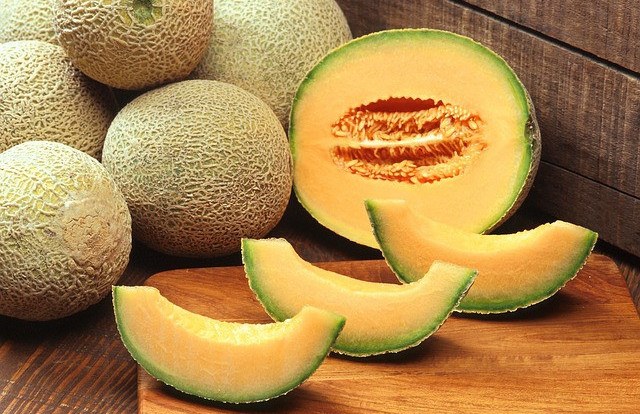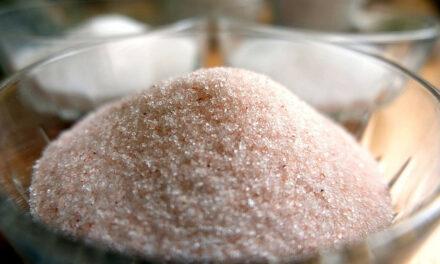A question people with diabetes ask often is what fruits are safe for them to eat, due to the fact some can raise blood sugar. Many different fruits have been researched to see if they benefit diabetics: various types of berries, kiwi, peaches, cherries, etc. Those are all fruits that have been looked into and researched, trying to discover if they are good for diabetics. Well, today, we’re going to be looking into the fruit that is cantaloupe melon. Can Diabetics Eat Cantaloupe Melon?
We’ll not only be discussing whether it’s good for diabetics, but we’ll also talk about and discover the different types of melon out there, the history of Cantaloupe melon, and the nutrients that it holds.
So, let’s get started.
Types of Melon
There are 3 popular types of melon: Watermelon, Cantaloupe, and Honeydew.
1) Watermelon
Though a bright red color due to everything else watermelon holds inside of it, is mainly water.
Watermelon is up to 92% water, but somehow still can potentially have a sweet, mouthwatering taste.
2) Cantaloupe
Cantaloupe is a light orange color, and it’s very sweet and juicy when it’s ripe. When it’s not fully ripe, it doesn’t have much flavor, and it’s crunchy.
When it’s overripe, it’s mushy, and has a sour taste to it. This is the case with most fruit, actually, but with cantaloupe, there is never any question whether it’s unripe, ripe, or overripe. The fruit make’s it very obvious which stage it’s at.
3) Honeydew
Honeydew is a faded green color, with not very much flavor to it.
Despite not having much flavor, it is quite nutritious, and fairly easy to get in your diet by throwing it into a fruit salad with fruits that have significantly more flavor.
Now that we’ve discussed the different types of melon that are out there, let’s talk more about the melon we will mainly be talking about today: Cantaloupe.
What is Cantaloupe Melon?
Cantaloupe melon is a type of melon that comes from the muskmelon species. The muskmelon species is from the family of Cucurbitaceae.
The scientific name for the fruit is cucumis melo var. catalupensis, which is quite a mouthful, right? This is exactly why it’s called Cantaloupe for short.
However, Cantaloupe also has quite a few other names people refer to it as, besides Cantaloupe, and besides the scientific name of the fruit, actually.
Let’s review the history of cantaloupe, and find out the other names people have for this muskmelon fruit.
History and Different Names
Cantaloupe is a fruit that’s been around for quite a long time, now. Due to that fact, people aren’t 100% positive about where it originated. However, it most likely originated in a region from South Asia to Africa.
Although it’s not certain where it actually originated, it is known that it was introduced to Europe later on, somewhere around 1890.
After that, it went to the United States, becoming a commercial crop there. Now, cantaloupes are actually the most popular melon in the United States.
The cantaloupe melon has other names it goes by, though most people are unaware of them. Some of those names include:
- rock melon,
- sweet melon, and
- spanspek.
These alternative names are mainly based on the taste and texture of the fruit.
Now that we’ve gone in-depth about the history of Cantaloupe, and the different names it goes by, let’s dig deeper into the nutrients that the fruit holds.
What is in Cantaloupe? (Nutrition Content)
The nutrition in cantaloupe is in the table below:
|
Nutrient |
Amount in the food |
|
Total Fat |
1 g |
|
Cholesterol |
0 mg |
|
Sodium |
88 mg |
|
Potassium |
1,474 mg |
|
Total Carbohydrates |
45 g |
|
Protein |
4.6 g |
The main topic of this article: Cantaloupe and diabetes. If you’re reading this to find out the answer to whether or not diabetics can consume cantaloupe with no worries, the next question and answer may be something you want to pay attention to.
For diabetics, it is important to pay attention to the Glycemic Index of the foods they eat. The glycemic index is a number that can tell you how much a food can increase your blood sugar.
The higher the number, the more likely it is to raise your blood sugar, and the higher the number, the higher your blood sugar could potentially be raised by the food.
Now that we know what glycemic index is, let’s discuss what the number is in Cantaloupe Melon, and discover whether it’s likely to raise your blood sugar, lower your blood sugar, or just leave it be.
What is the Glycemic Index of Cantaloupe Melon?
The glycemic index is fairly high for the fruit of Cantaloupe. Most fruits holds a Glycemic index between 30-50, but cantaloupe has a glycemic index of 65.
However, because the fruit is mostly made up of water, a standard 120 gram serving is very low on carbohydrates and calories, which means the glycemic load has a score of 4.
As discussed earlier, there are 2 other melons, besides cantaloupe, out there. Let’s compare those 2 other melons to cantaloupe, and see what the difference is between the nutrients they offer.
Cantaloupe vs. Watermelon – The Difference in Nutritional Content
Cantaloupe and watermelon, though so similar, are so different, as well. Both are made up mostly of water, but watermelon has 2% more water in it than cantaloupe does. A small difference, but any difference, big or small, can be a significant one when it comes to nutrition and effect on diabetes.
Another difference between the two is that cantaloupe has more immune-boosting vitamin C than watermelon does, helping your immune system become stronger so it can fight off illnesses.
Finally, watermelon contains lycopene, which is a carotenoid that’s been tested and has been shown to protect the skin against the damage UV-lights can cause. Cantaloupe is lacking this nutrient.
Now that we’ve discussed the differences between cantaloupe and watermelon, let’s discuss the differences between cantaloupe and the other popular melon out there: Honeydew.
Cantaloupe vs. Honeydew Melon – The Difference in Nutritional Content
Just like cantaloupe, honeydew is considered a musk melon. Watermelon is not considered a musk melon, so cantaloupe and watermelon have some more differences between them than cantaloupe and honeydew have.
Actually, the two musk melons only have two differences regarding the nutritional content, cantaloupe coming out on top in both of them.
The first one is something cantaloupe holds over watermelon, as well, which I talked about above. Cantaloupe has more immune-boosting vitamin C than honeydew does, making it a better choice to strengthen your immune system and to fight off illnesses.
The other difference between the two is that cantaloupe contains more beta-carotene than honeydew does. Beta-carotene is a nutrient that converts to vitamin A when it enters the body, making it good for your skin, and for your eyesight.
Other than that, the two musk melons don’t have any differences in the nutritional content they hold. The only other differences between them have to do with the appearance and the taste of the fruits.
Above, while discussing the differences between the 3 popular melons, we touched just a bit on the health benefits’ that cantaloupe has. However, the fruit has many more benefits’ that we haven’t discussed.
So, we’re going to discuss those benefits’ right now, and get in-depth about the positive effects that cantaloupe can potentially have on the human body.
Health Benefits of Cantaloupe Melon
Even if you’re aware of cantaloupe melon, it’s possible that you could be unaware of all the benefits’ cantaloupe really has. There are many benefits’ this fruit holds due to the nutrients in the fruit.
Some of the top health benefits’ are below:
1) Helps lower blood pressure
Cantaloupe has been shown to contributing to lowering blood pressure in those who have relatively high blood pressure.
It’s a fruit that’s rich in potassium. Most foods high in potassium are known to help lower blood pressure, and cantaloupe isn’t the exception.
2) Hydrating
Just like most fruits, especially other melons, cantaloupe is high in water. It’s almost 90% water. Not quite as much as watermelon, but it’s very close.
However, the fact that it’s mostly made up of water is not the only reason that this fruit is hydrating. It’s also filled with electrolytes, which help hydrate you faster.
3) Beta-carotene
Cantaloupe has lots of beta-carotene in it.
When beta-carotene enters the body, it either gets converted to vitamin A, or it acts as a powerful antioxidant that helps fight off free radical cells that attack cells in your body.
Either way, it’s a win, win, Cantaloupe has more beta-carotene than the majority of fruits, including: apricots, mangoes, grapefruit, oranges, tangerines, peaches, and nectarines (according to the USDA).
4) Anti-inflammatory
Cantaloupe is full of a compound called phytonutrients, which is known for being anti-inflammatory, and sometimes helping to fight off diseases.
5) Low in carbs
Cantaloupe is filled up with water, alongside many vitamins and minerals such as zinc, folic acid, vitamin, magnesium, calcium, iron, etc. There’s no room for much else.
There are a handful of carbs in the fruit, but the number of carbs in it is relatively low.
So, unless you consume an extreme amount of cantaloupe, your carb intake isn’t something you need to worry about while eating it.
6) It may help reduce the risk of cancer
There is evidence that shows that taking supplements that contain beta carotene, tocopherol, and other antioxidants may help reduce your risk of developing lung, prostate, and other types of cancer.
Their antioxidants aren’t only in supplements, but they’re actually also in cantaloupe, meaning it should have the same effect as taking the supplements do.
Whether you take the supplement, or eat cantaloupe (which contains the same antioxidants), it should still lower your risk of developing certain kinds of cancer.
7) May prevent asthma
One final, bonus health benefit of cantaloupe is the fact that cantaloupe may even help to prevent a person from developing asthma later on in their life. This is due to the high levels of antioxidant beta carotene in the fruit. Pretty useful, right?
How Cantaloupe Effects Diabetes? What Does Research Say?
Cantaloupe is actually not as bad for diabetics as people may think. Actually, it’s often recommended for diabetics, especially if your blood sugar levels are well under control!
Research has shown that consuming cantaloupe can potentially preserve skin and hair health, as well as preserve eyesight during the aging process.
It’s also been found to lower blood pressure, support heart health, improve blood glucose metabolism, and reduce oxidative stress in the kidneys. All positive effects to benefit those with diabetes.
So, if you’re diabetics and are worried about consuming cantaloupe, that is not a fear you need to have. Cantaloupe, if anything, helps and benefits’ those with diabetes, not damage or harm them.
Of course, like everything, there are tips for diabetics to consume cantaloupe safely. Right now, we’re going to dive into those tips, and discuss what might be helpful for you if you have diabetes.
How Diabetics Should Consume Cantaloupe? Tips for Diabetics
Like I already said, cantaloupe is actually recommended for those with diabetes, and even foods that are recommended for diabetics usually have some tips or guidelines to following while consuming them.
Although that is still true, even for cantaloupe, it’s not a food that has very many tips when it comes to diabetics consuming it.
One tip that it does have though, is to get it into your diet by snacking on it, or maybe throwing it into a fruit salad, smoothie, or yogurt.
Remember, if you decide to add the fruit to something, make sure it’s not mixed with other fruits that raise blood sugar, as that can defeat the purpose that cantaloupes have for diabetics.
Fresh, local, and ripe cantaloupe is a lot better for those with diabetics, as it’s healthier in general and it’s more beneficial. Plus, cantaloupe that’s not local may have travelled all the way from Central or South America, and it probably won’t be as fresh since it’s travelled such a long way.
Those are the two big tips for diabetics consuming cantaloupe. Cantaloupe, due to all the benefits’, is not likely to harm diabetics because of their diabetes. There are still, however, select situations in which diabetics should not consume cantaloupe.
There are not very many situations in which this is the case, but there’s still some. So, that’s what we will be going in-depth about, and discussing right now.
When Should Diabetics Not Consume Cantaloupe?
Cantaloupe is almost always safe for diabetics to consume. However, it should not be eaten in instances where your blood sugar is already high, or along with other foods that can raise your blood sugar.
Although consuming the fruit on its own is typically safe for those with diabetes, as it won’t really raise your blood sugar, it’s probably not a smart thing to eat when you already have high blood sugar. If you have high blood sugar, you’re supposed to only eat things that may contribute to bringing it down.
Like I said, cantaloupe will not raise your blood sugar considerably on its own. However, it will not bring it down either. So it’s not a recommended food to eat when your blood sugar is already high. Besides that, though, overall, cantaloupe is pretty safe for diabetics to consume.
Risks of Overeating Cantaloupe
Even the best, most nutritious foods can potentially have negative effects on somebody, if they consume enough of it. Cantaloupe is no exception to this.
The following are risks you could be taking if you consume too much cantaloupe:
- If you have kidney disease, it can damage your kidneys even worse because your organs might not be able to filter out the extra potassium that too much cantaloupe would bring into your body.
- It can cause heartburn, which can be extremely uncomfortable.
- It can cause digestion problems, resulting in reflux, bloating, vomiting, and/or diarrhea.
- Too much can raise your blood sugar to potentially dangerous levels. Any fruit can do this if you consume too much, but cantaloupe especially has a higher chance of raising your blood sugar if you eat too much of it.
Those are just the basic risks of overeating cantaloupe. It has the potential to do some damage to your body. So, be sure that when consuming cantaloupe, you don’t eat too much.
A serving size of cantaloupe is one cup. Most people can typically get away with eating a bit more than that, but make sure not to overdo it, or you might get one, a few, or all of these side effects, or maybe even something not on the list.
Just make sure not to consume too much, as the truth is, you never really know exactly what kind of effect it will have on you.
Conclusion
In conclusion, though cantaloupe does have a glycemic index that’s on the higher side, cantaloupe overall is not a food that needs to be avoided by diabetics. It has many benefits’ that may potentially help those with diabetes, and due to the fact it’s low in sugar and high in water, it’s not dangerous for diabetics to consume.
In fact, cantaloupe is recommended for people with diabetes to eat. It has a significant amount of benefits’, and almost no negative side effects, even for those without diabetes.
So if you’re prediabetic or diabetic with a stable blood sugar level, wanting to eat some cantaloupe, don’t worry too much about it. It won’t spike your blood sugar sharply or have other serious negative effects on you due to your diabetes.
Thanks for reading, and I hope you were able to learn something new!














